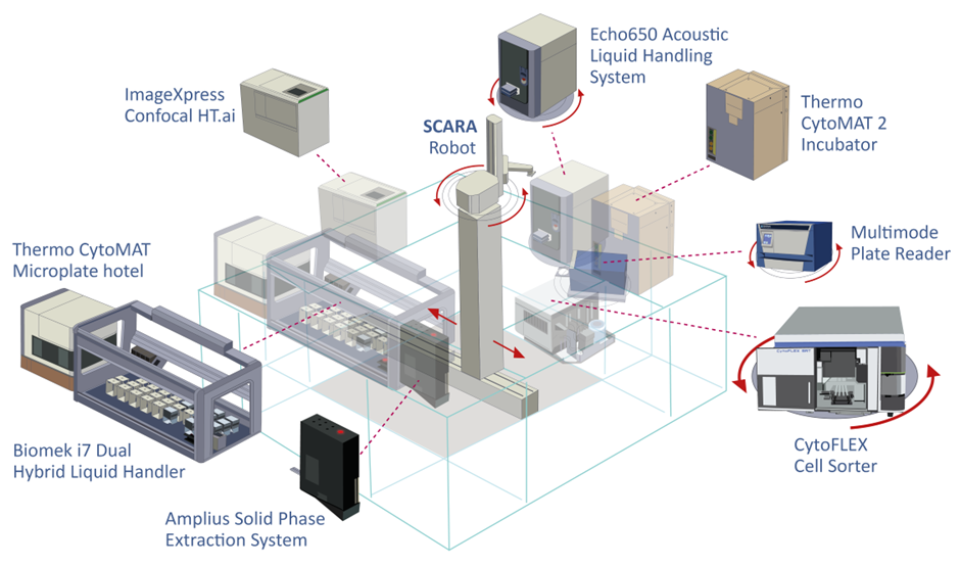
Research Newsletter - Issue 81: Funding Success
SFI National Challenge Fund Awards
Two DCU teams have been awarded the National Challenge Fund funding under the 2050 Challenge call.
- The H2Glas project, led by Dr Mary Pryce (School of Chemical Sciences) and co-led by Dr Rob O’Connor (School of Physical Sciences), has been awarded funding under the SFI 2050 Challenge call. The DCU Team will work with Cian Ryan at EIH2, the Societal Impact Champion on this project. The transition to a renewable energy based future brings challenges in terms of guaranteed continuity of supply, energy storage, and energy security. ‘Green’ hydrogen, produced by water splitting using renewable electricity (electrolysis), will play a major role in addressing these issues, and facilitating the transition. However, the limitations of current-generation electrolysers are a barrier to the realisation of this vision. This project will focus on the development of an innovative electrolyser system to produce green hydrogen, with an emphasis on the use of sustainable materials and advanced manufacturing techniques.
- The RESR (Renewable Energy Storage Reactor) project, co-led by Dr James Carton (School of Mechanical and Manufacturing Engineering) in collaboration with researchers in UCD aims to technically advance/optimise the "Renewable Energy Storage Reactor" (RESR) with advantages centred around patent-protected catalysts, processes and technology that vastly increases the energy storage density of green-produced hydrogen. The team intends to enhance the utilisation of hydrogen storage media with increased safety and reliability while developing/upgrading the lightweight prototype reactor with components for ease of assembly and manufacturing while enabling recycling and reusability of the energy storage medium, thus establishing a circular economic/environmental friendly process. The goal is to build a foundation for the commercialisation of the Renewable Energy Storage Reactor with the development/de-risking of the prototype reactor at a practical scale for mobile drone applications with an Irish-UAV company.
Congratulations to both teams!
SFI Research Infrastructure Programme 2021
In 2022, in an application led by Prof. Andrew Kellett (School of Chemical Sciences), DCU was awarded €2.41M for the AUTOPILOT system from SFI’s Infrastructure call. The proposal was developed as part of a team effort in collaboration with Dr Alex Eustace (Biotechnology, DCU), Dr Denis Collins (NICB, DCU), and Dr Creina Slator (Chemistry, DCU).

AUTOPILOT system
This system is a unique, custom build, robotically controlled platform enabling high-throughput cell characterisation including phenotyping by flow cytometry, high content analysis, proteomics, and cell culture analysis. It enables numerous automated workflows to be performed simultaneously, essentially facilitating analysis of any perturbation to cellular function by a large pool of compounds or in a number of model systems.
Late diagnosis and a lack of curative treatments for aggressive cancers is likely to remain one of the most complex and expensive health issues of the 21st century in Ireland and beyond. Despite advances in our understanding of disease states and tandem targeted drug discoveries, clinical drug failure rates remain stubbornly high. This failure is partly associated with the analysis of complex disease states under narrow conditions with limited read-out and target pool screening capabilities. The AUTOPILOT system is a breakthrough robotic automated cell culture characterisation suite that can address this limitation. The system can perform multiple cellular phenotypic characterisation analyses to provide a global quantifiable measurement of both disease states and drug efficacy. The instrumentation cuts across multiple disciplines of intensive research focus in Ireland—including drug discovery and translational medicine—and will fundamentally strengthen both early- and late-stage research capabilities and enhance our ability to produce excellent science.
In a national context, AUTOPILOT provides an interface to support researchers in their analyses of diagnostic and therapeutic biomarkers, and positions DCU at the centre of advances in Therapeutics, Diagnostics, Data Analytics, Artificial Intelligence, and Robotics.
We are delighted to see the first deliveries arriving of this very unique system and once we have a plan established for the required lab modifications, we will follow up with more information on installation and commissioning dates.
